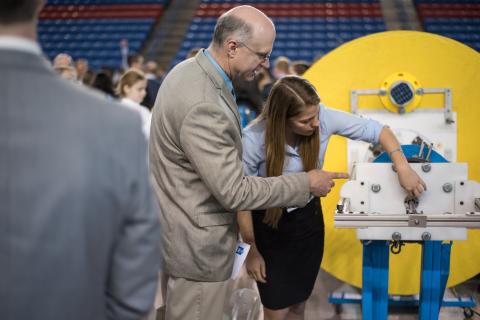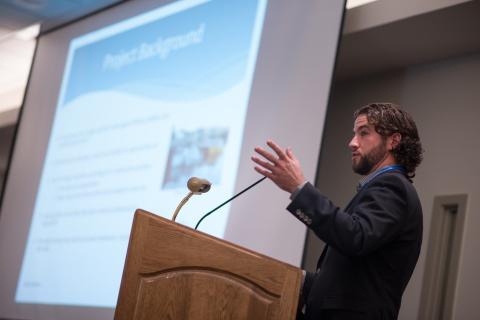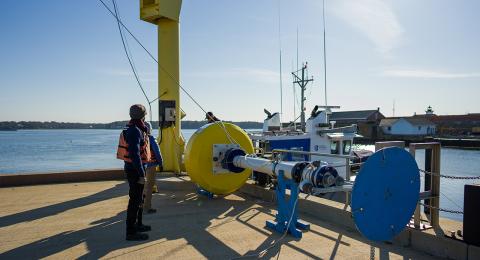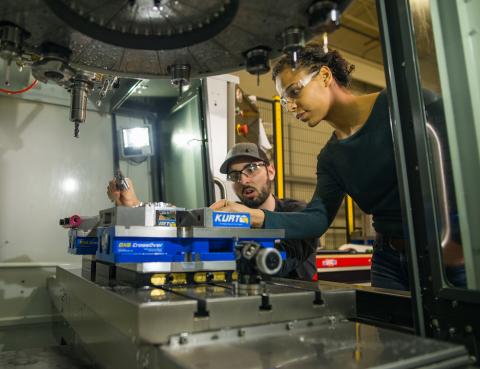Career Pathways
Ocean Engineering at UNH is intended to provide students with a rigorous foundation in several of the traditional and emerging concentrations within ocean engineering including ocean instrumentation, the design of ocean structures, coastal engineering, ocean hydrodynamics, and ocean acoustics. Through technical electives and optional research internships with UNH faculty, BSOE students have the opportunity to choose career pathways that could include:
- Coastal Engineering (coastal structures, coastal erosion and adaption)
- Marine Renewable Energy (harnessing wave and tidal energy)
- Marine Robotics (autonomous and remotely controlled surface and underwater vehicles)
- Ocean Acoustics (the study and use of sound in the sea, sonar engineering)
- Ocean Environmental (environmental engineering, remediation, and human health)
- Ocean Instrumentation (the design, calibration, and novel use of ocean sensors)
- Offshore Structures (design/deployment of structures in the ocean)

Career Demand
The Bureau of Labor Statistics estimates that between 2010 and 2020, there will be a 14.3% increase in number of professional positions for marine engineers, including ocean engineers, resulting in an increase of more than 50,000 job openings. Given the very low number of BSOE programs across the nation, the demand for graduates is expected to be extremely high. Students graduating with a BSOE are currently sought by a wide range of employers including the federal government (e.g., navy labs, NOAA, Army Corps of Engineers), DoD contractors, environmental consulting firms, ocean equipment and instrumentation manufacturers, ocean survey (mapping) companies, and oceanographic research institutions. Within New Hampshire, examples of these of employers include the Portsmouth Naval Shipyard, BAE, L3-Klein, Airmar, Appledore Engineering, and the University of New Hampshire.




